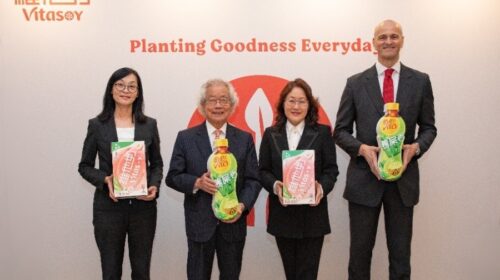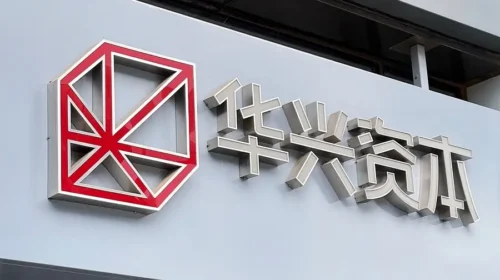ATRenew takes solid steps to fuse ESG into its recycling business

The company continued to reduce the intensity of its carbon emissions last year, a key area at the heart of its ‘circular economy’ business model
Key Takeaways:
- ATRenew’s greenhouse gas emission intensity decreased about 19% last year, extending a 29% reduction in 2021, its latest ESG report showed
- The company also made progress in other ESG areas, including in corporate governance, by increasing its board’s gender diversity
By Warren Yang
ATRenew Inc. (RERE.US) is trying to show it practices what it preaches in environmental, social and governance (ESG) matters. There’s good reason to believe the recycling specialist isn’t just spewing empty talk on the increasingly popular investment theme, since getting the “environmental” part right – the “E” in ESG – goes to the heart of the philosophy behind its business model.
Still, ATRenew’s latest yearly report on its ESG achievements, released last month, also goes to pains to show it’s not just all about the “E” in ESG, but also about the “social” and “governance” elements that round out the concept. While some still discount such efforts as mostly PR, the concept is gaining growing acceptance with the rise of well-defined standards and independent bodies to rate companies’ ESG efforts.
The “E” is where ATRenew has the most skin in the game due to its position as a recycler of not only smartphones, its original business, but increasingly covering all consumer electronics and selected products like bags, watches, gold, and vintage liquor. The company showed progress in many of the areas in its report, but also admitted that its own growth comes with a cost of greater impact on the environment.
The report shows the company is making steady improvements in reducing carbon emissions, decreasing the intensity of such emissions by about 19% to about 0.3 tons of CO2 equivalent per million yuan last year, following a 29% reduction in 2021. This basically means that the company has been producing less greenhouse gas to generate every 1 million yuan ($138,100) in revenue.
The carbon emission intensity figure doesn’t include any “scope 1” emissions, since the company neither owns nor direct controls any fuels and resources. Instead, the figure is solely derived from purchased electricity, which is classified as “scope 2” under the Greenhouse Gas (GHG) Protocol.
The company also discloses many items under “scope 3” emissions that indirectly derive from its operations, although it doesn’t include them in calculating its emission intensity. Last year, ATRenew boosted its definition of scope 3 emissions, proactively measuring its GHG impact through its value chain wherever possible, by adding capital goods, operational waste, employee commuting and product disposal to its earlier definition that consisted of downstream leased assets, business travels, and upstream and downstream transportation and distribution.
As a result of those changes, ATRenew’s scope 3 emissions jumped in 2021. They grew further last year due to an increase in fixed assets required for opening an operation center in the Southern China city of Dongguan, which led to a jump in emissions from capital goods.
The company also reused 18 tons of packaging fillers for business-to-business parcels and recycled and reused 36,000 packaging boxes for B2C orders. In addition, ATRenew reduced pollution from electronic products by about 43 tons by dismantling more than a quarter million devices in an environmentally friendly way. ATRenew also requires its suppliers to classify, recycle and reuse metal materials at the end of dismantling processes.
Such efforts are a natural fit for a company whose mission is “to give a second life to all idle goods,” which in principle will help reduce waste and protect the environment. With that goal, ATRenew is also on the right side of Beijing’s policy. China, which currently is a huge energy consumer, aims to reach peak greenhouse gas emissions by 2030 and achieve carbon neutrality by 2060.
Those ambitious targets have helped to stoke a boom in the Chinese market for recycling and trading in pre-owned electronics. Demand could also rise in the next few years as China’s slowing economic growth leads budget-conscious consumers to rein in their spending. ATRenew is a clear beneficiary of both trends, with its annual revenue roughly doubling in the last three years to 2022.
Better governance
ATRenew is one of a growing number of major Chinese companies that have embraced ESG as a key part of their corporate philosophy. PC manufacturer Lenovo (00992.HK) and technology firms like Alibaba (BABA.US; 9988.HK), Tencent (0700.HK) and Baidu (BIDU.US; 9888.HK), in particular, also stand out for developing ESG strategies to improve internal efficiency, reduce risks and drive talent acquisition.
ATRenew also made some progress in improving its corporate governance, a key weakness for Chinese companies, which are often known for their irregularities and aggressive practices that sometimes lead to scandals. The ESG report showed the company enhanced its board structure that now consists of eight members, including two women – one more than a year earlier – and three independent directors.
Studies have shown that more diverse boards generally help companies improve their financial performance for the simple reason that directors with varied backgrounds can bring in fresher perspectives and ideas. And while going from just one female director to two may look like a minor change, it’s still is a step in the right direction.
ATRenew also increased the frequency of meetings by its risk management committee. The group met 11 times last year, compared to seven in 2021, to discuss 34 issues, versus 23 in the prior year. It also executed a series of audit projects, including anti-fraud investigations, and checks on inventory and procurement management, and corrected most deficiencies it discovered.
Overall, ATRenew received an ESG risk score of 17.8 from Morningstar Sustainalytics, which means the company is at “low risk” of facing ESG-related problems, the second strongest rating out of five. ATRenew ranks fourth out of 85 online and direct retail companies rated globally by Morningstar, though it is near the middle of the pack for the broader retail sector in terms of its ESG-related risk.
For all its ESG progress, investors most likely care most about ATRenew’s profitability. The company has yet to turn a profit though it was profitable on a non-GAAP basis that is a widely accepted for tech companies. It has recorded adjusted net income for three consecutive quarters, topping 50 million yuan in the first quarter of this year, while its net loss from operations nearly halved year-on-year in the same period. The company expects its adjusted net margin will grow further in the current fiscal year.
ATRenew shares have lost almost 80% of their value since the company went public in 2021. They trade at a price-to-sales (P/S) ratio of just 0.5, although that’s better than 0.2 for U.S. car recycler Carvana (CVNA), and 0.4 for clothing recycler Rent the Runway (RENT.US),
ATRenew’s low valuation probably owes at least partly to its lack of a profits, though at least one analyst expects the company to become profitable this year, according to Yahoo Finance. Once the company proves it can generate sustainable profits while ticking all the right ESG boxes, investors may start to give it a strong second look.
The Bamboo Works offers a wide-ranging mix of coverage on U.S.- and Hong Kong-listed Chinese companies, including some sponsored content. For additional queries, including questions on individual articles, please contact us by clicking here.
Have a great investment idea but don’t know how to spread the word? We can help! Contact us for more details.
To subscribe to Bamboo Works weekly free newsletter, click here






